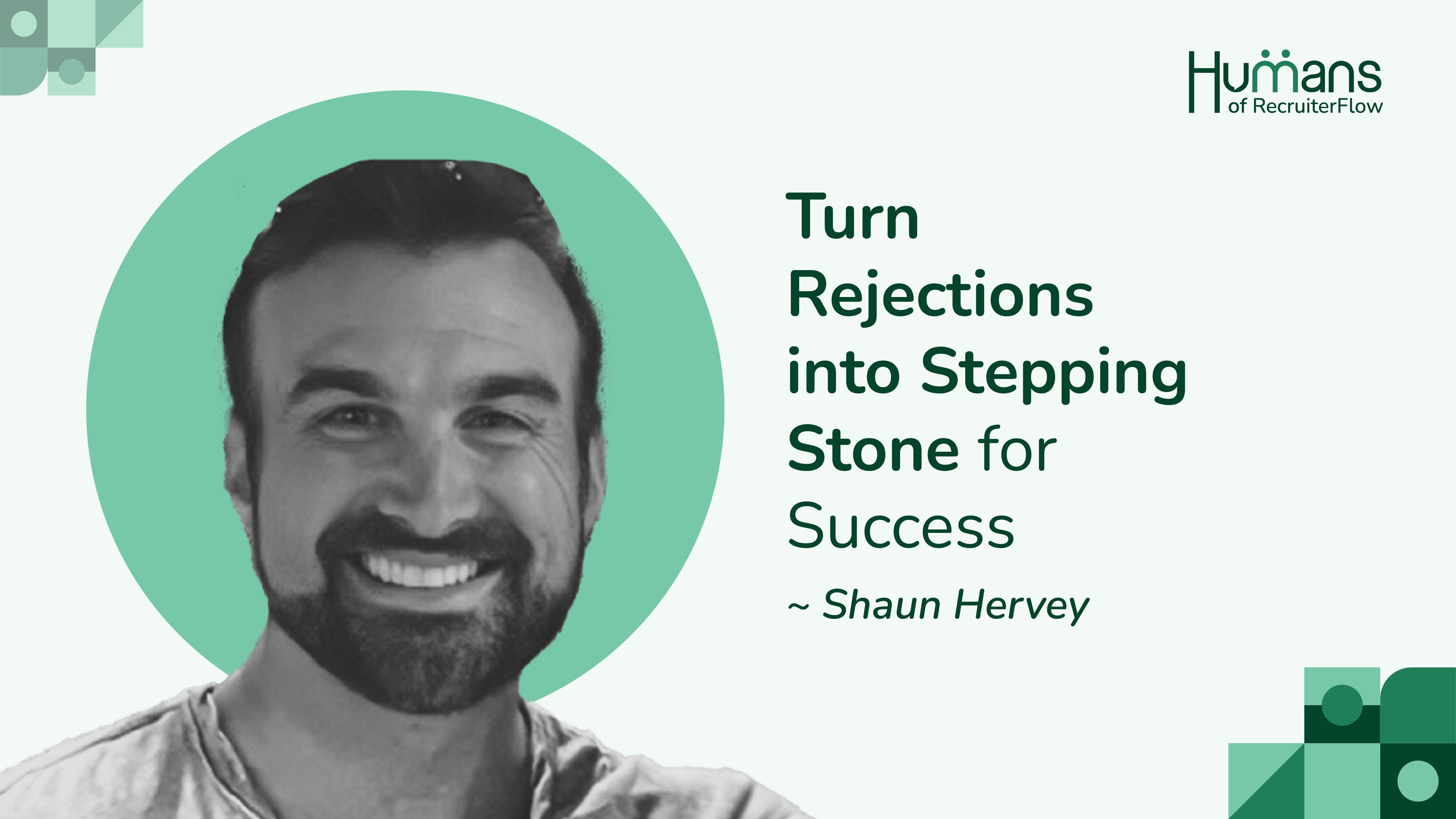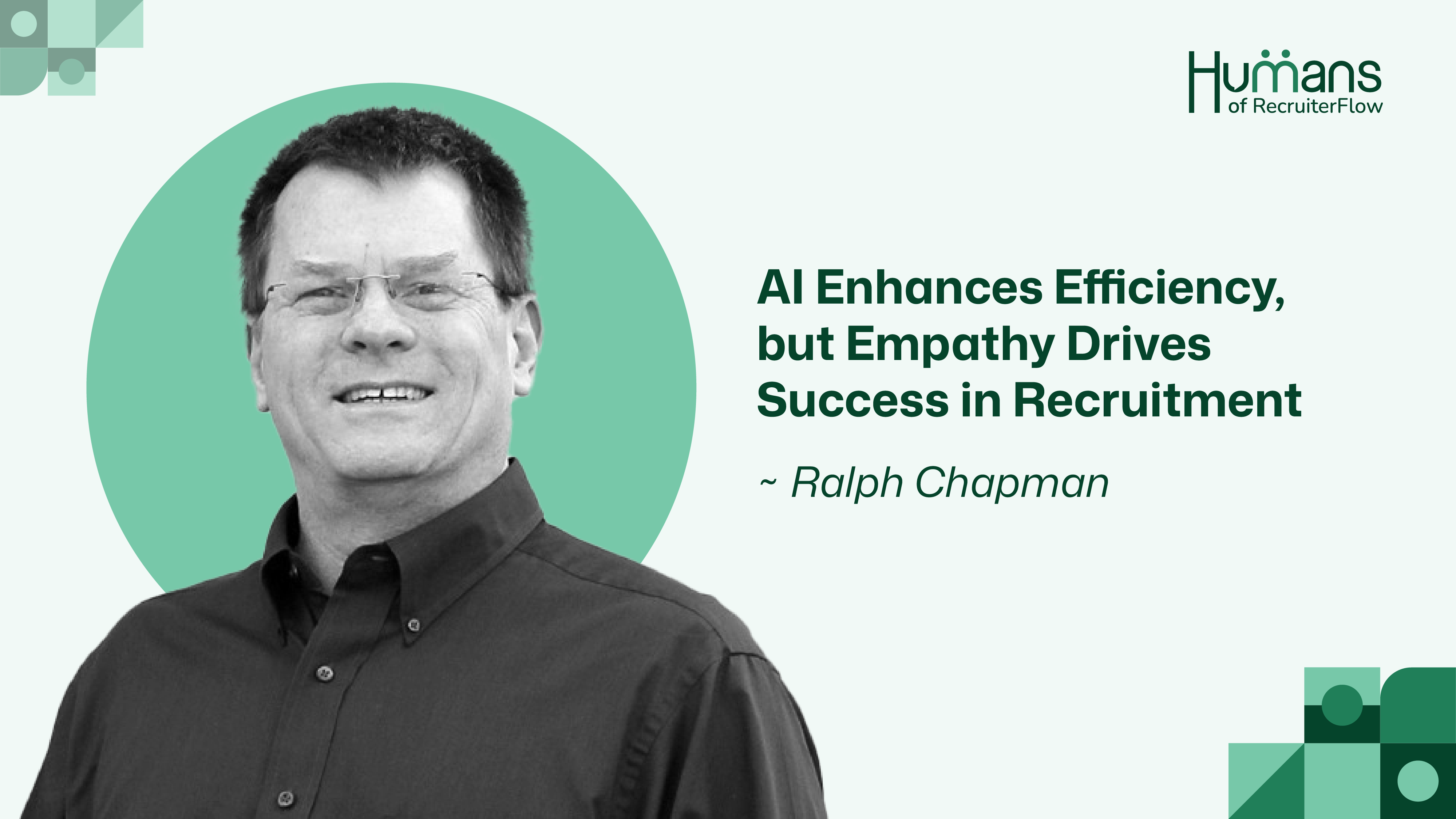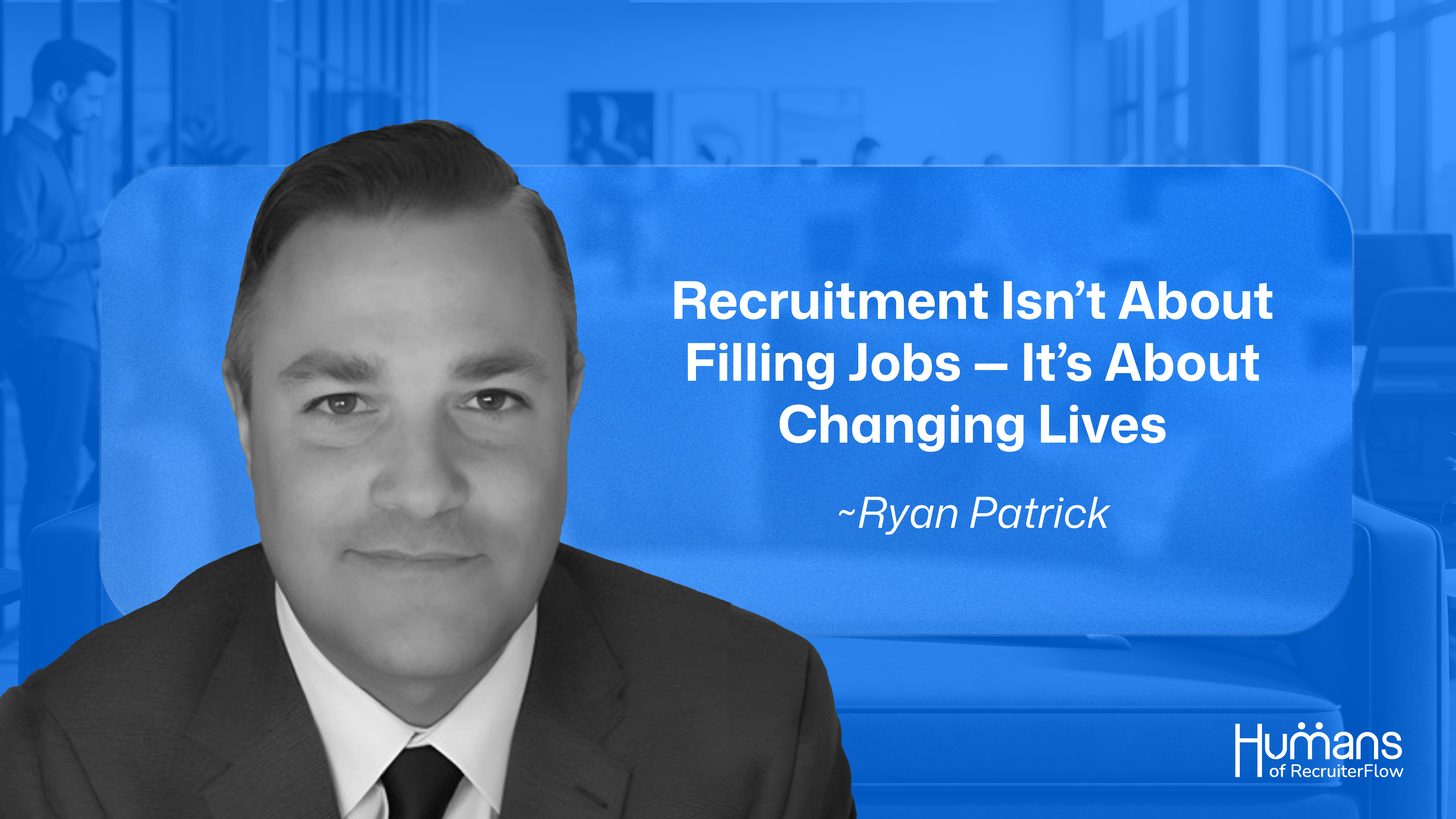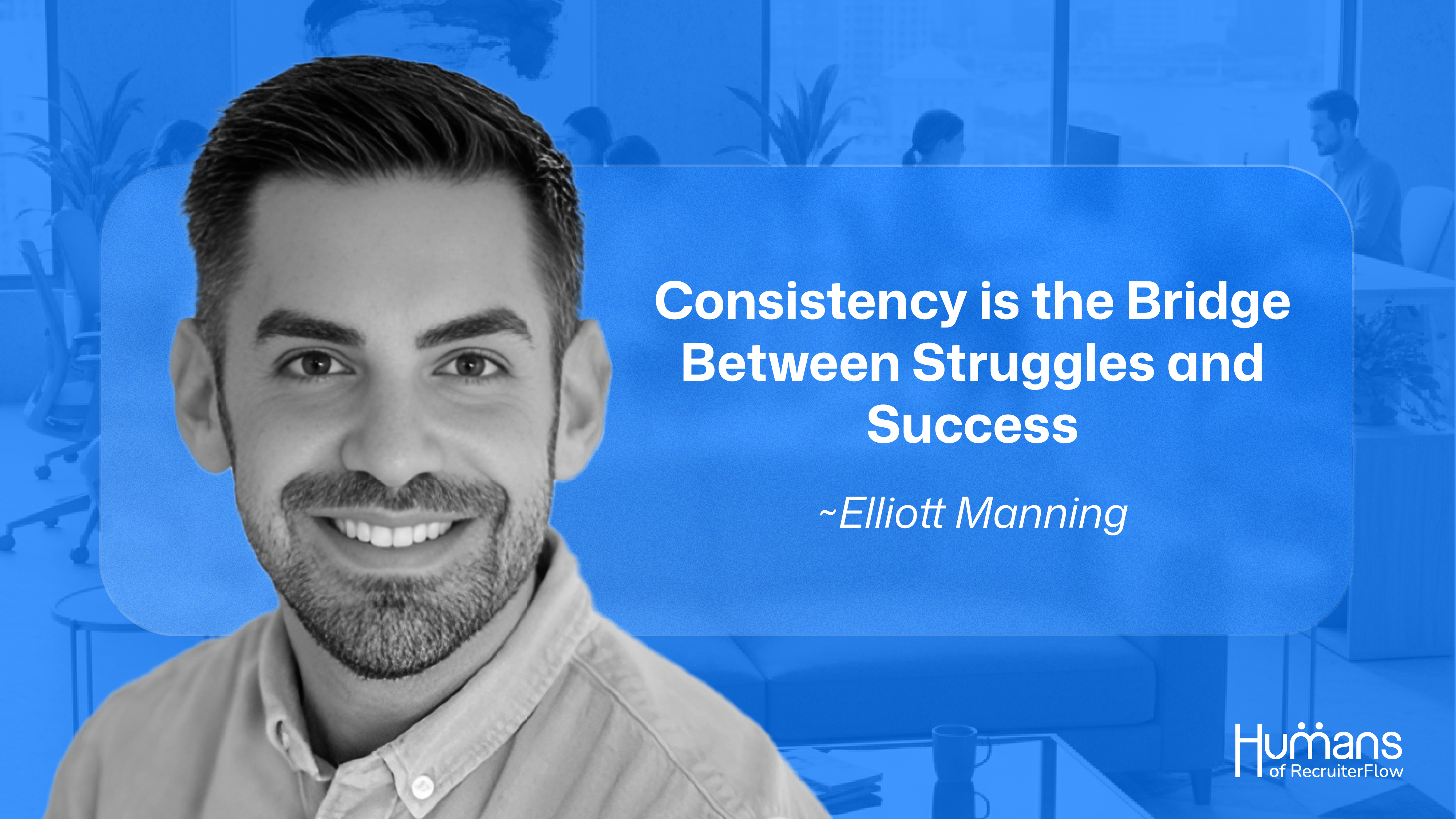
“Recruiting is Blend of Sales, Psychology, and Understanding People” – Thomas Patrick Chuna
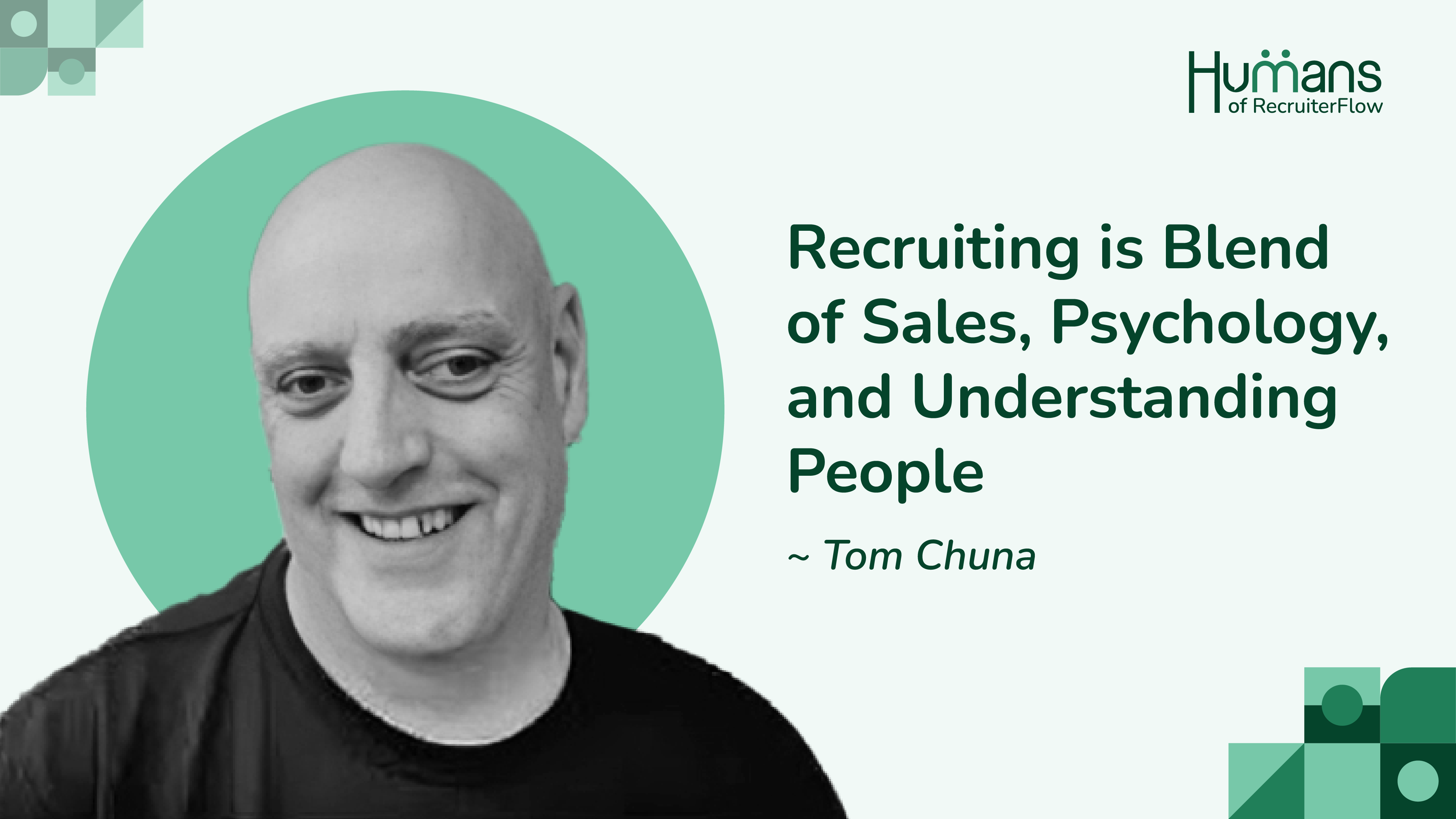
The recruiting market has always been fluid. Yet few voices capture its ups and downs as vividly as Thomas Patrick Chuna, Chief People Officer at QTL Holdings.
Thomas started his recruiting career in the 90s, long before LinkedIn and Indeed even became a thing. He has seen the industry go from using printed directories and fax machines to sophisticated ATSs and CRMs—all up close.
Looking back, he shares, “Recruiting changed my life, saved my life, and gave me a life.”
Today, Thomas oversees recruiting, onboarding, employee development, and leadership training for QTL Holdings.
In short, Thomas has come a long way, and there’s plenty to learn from his journey.
That’s exactly what we aim for via this episode of our Humans of Recruiterflow series.
Thomas’s 3-Point Philosophy for a Winning Recruitment Process
1. Candidate Experience Matters
Thomas believes recruitment is as much about selling the company as it is about evaluating candidates.
“You’re offering a job, so it’s your responsibility to tell candidates why they should work with you,” he asserts.
This philosophy shapes how Thomas trains his team and designs recruitment strategies for his organization.
By leveraging an applicant tracking system to track metrics like pipeline progression and candidate drop-off rates, he ensures that the recruitment experience is consistent and respectful of candidates’ time.
In Thomas’s own words,
“Here’s an important metric to track: How long, as a hiring manager, are you leaving your candidate in that stage? No technology is going to make you better at that. You must commit to knowing what you want and getting that person through each stage yourself. Delivering a top-notch candidate experience should be your priority.”
2. Trust, Clarity, and Alignment Are Non-Negotiable
Building trust and maintaining clarity at every stage is central to Thomas’s recruitment strategy. He ensures alignment with managers by asking questions like:
- What are you really looking for in this role?
- Are we aligned on decision-making timelines?
- How actively involved will you be in the hiring process?
These conversations ensure clarity from day one. As Thomas puts it,
“Recruiting is transactional until clients trust you enough to make it relational.”
3. Balancing Technology and Human Interaction
Back in the 90s, recruiting was a pure grind. Recruiters spent hours manually scouring through directories, dialing numbers, and tracking leads.
But here’s the thing: Despite being labor-intensive, the process was “personal.”
Today, technology has our back. Tools like Recruiterflow serve as a command center for agencies to efficiently source, screen, and engage candidates.
Still, “Now it’s way harder to get people to answer the phone,” Thomas points out.
The rise of telemarketing and tighter privacy laws have made it difficult to track passive candidates, especially in industries like HVAC and plumbing, where employers closely guard technicians.
The crux?
“Modern RecTech has made recruiting easier, faster, and smarter. But that’s not it. You still need that human connection to make it happen—even more so today than ever.”
The key is to balance technology with the trust and rapport only human interaction can provide.
What Does Success Look Like to Thomas?
For Thomas, success is delivering a flawless hiring experience every time.
“When my boss says, ‘We’ve got the best recruiter in the business,’ or when they text me saying, ‘Thomas, I need a plumber in Dayton,’ and they know I’ll deliver, that’s a success,” he shares.
The best part is that Thomas’s ability to inspire confidence extends beyond his immediate team. Larger franchises often take note of QTL Holdings’ low turnover rates and strong onboarding practices.
“When others steal our ideas, it makes me happy. It means we’re doing something right.”
Overcoming Challenges in Blue-Collar Recruitment
Recruiting blue-collar workers means dealing with frequent ghosting and varying levels of professionalism.
Thomas’s strategy? Constant communication and a focus on development.
During interviews, he invites candidates to have unscripted conversations with current employees to get an authentic “how it is to work with us?”
Post-hire, he conducts regular 90-day reviews and candid discussions about improvement areas to keep his team aligned and motivated.
Thomas’s certification as a psychometric consultant adds another layer to his recruitment process. By understanding candidates’ values, behaviors, and motivations, he ensures a strong cultural fit.
“I don’t weaponize talent assessments. I focus on development,” he explains.
Thomas Advice for Aspiring Recruiters
Having spent decades (3 decades, to be precise) in the industry, Thomas has learned the following and advises newbies the same:
- Focus on Relationships Over Transactions
Early in his career, Thomas admits he wasted time treating recruitment as a numbers game, sending out resumes and hoping they’d stick. Later, he learned that success comes from understanding client needs and building relationships rooted in trust.
- Stick to the Basics
No matter how advanced the tools will get, the fundamentals of recruitment—listening, connecting, and delivering value—will always remain the core.
- Keep Your Energy Level Up
Recruitment requires consistency and energy. “Organize your days, keep making your calls, and stay disciplined. Your intensity should outlast the market’s unpredictability,” he advises.
- Learn (Yes, even from your competitors)
One thing that sets Thomas Chuna apart from other recruiters is his willingness to collaborate and learn from his competitors.
“I’m friends with recruiters in different territories. If they’re good, I’ll tell people about them. That’s the fun part of recruiting,” he says.
Wrapping Up
Thomas Chuna has experienced it all firsthand—from working with a “dusty filing cabinet” kind of database to AI-driven tools. Yet his focus on human connection remains.
He asserts over and over again that recruiting is about “sales, psychology, and people.”
This philosophy, paired with his focus on the 3 Cs—Clarity, Connection, and Commitment—sets a standard for what great recruitment looks like.
Recruitment